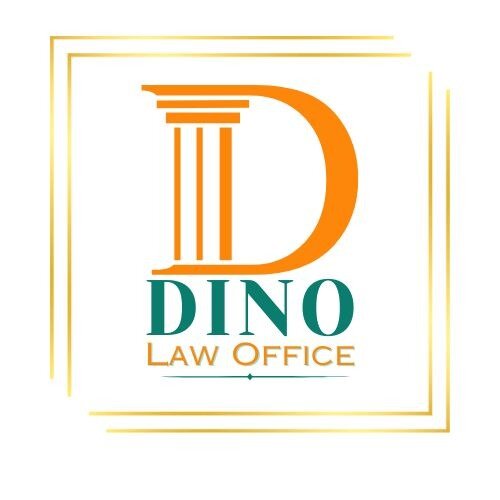Best Fintech Lawyers in Makati City
Share your needs with us, get contacted by law firms.
Free. Takes 2 min.
List of the best lawyers in Makati City, Philippines
About Fintech Law in Makati City, Philippines
Fintech, short for financial technology, has rapidly evolved as a significant sector in Makati City, Philippines. Being the country’s leading financial and business hub, Makati City has witnessed a surge in Fintech startups and innovations designed to improve financial services through technology. From digital payments and online lending platforms to blockchain and cryptocurrency innovations, the city's Fintech landscape is vibrant and growing. This rise in technology-driven financial solutions has led to evolving regulations and laws aimed at ensuring consumer protection, privacy, and financial stability within the sector.
Why You May Need a Lawyer
Engaging with the Fintech sector or starting a Fintech business in Makati City could require legal assistance for various reasons:
- Compliance: Navigating through the compliance requirements set by local and national financial regulatory bodies can be complex.
- Contractual Agreements: Crafting clear and enforceable agreements with partners, clients, and service providers is crucial.
- Intellectual Property: Protecting your Fintech innovations and brands through patents, trademarks, or copyrights is essential.
- Data Privacy: Ensuring adherence to data protection laws, such as the Data Privacy Act of 2012, is key to safeguarding user information.
- Litigation: Handling disputes, whether they are with customers, competitors, or regulators, requires professional legal intervention.
Local Laws Overview
The local legal framework for Fintech in Makati City is influenced by several key laws and regulatory bodies:
- Bangko Sentral ng Pilipinas (BSP): The BSP oversees the general regulation and licensing of financial services, including electronic money issuers and digital banks.
- Securities and Exchange Commission (SEC): The SEC regulates the Fintech businesses involved in securities, including crowdfunding and investment platforms.
- Data Privacy Act of 2012: This law governs the collection, handling, and processing of personal information within the Philippines.
- Consumer Act of the Philippines: This act protects consumers' interests and promotes fair trade practices in the Fintech industry.
Frequently Asked Questions
What is considered a Fintech company?
A Fintech company leverages technology to provide improved or new financial services. This includes digital payment systems, lending platforms, and blockchain-based solutions, among others.
Do I need to register my Fintech business in Makati?
Yes, starting a Fintech business in Makati requires registration with various regulatory agencies such as the SEC and BSP, depending on the nature of your business.
How do I ensure compliance with local Fintech laws?
Engaging a legal advisor familiar with the local Fintech regulatory landscape can help ensure compliance with BSP, SEC, and other applicable regulations.
What are the data privacy requirements for Fintech companies?
The Data Privacy Act of 2012 mandates that companies must implement necessary measures to protect the personal data they handle and collect from users.
Can I use cryptocurrencies for Fintech solutions in Makati?
Yes, but it is subject to regulation by the BSP. Businesses need to obtain necessary approvals and ensure compliance with anti-money laundering laws.
What legal documents do I need for a Fintech startup?
Essential legal documents include business registration, compliance certificates, shareholder agreements, and terms of service, among others.
Are there any tax incentives for Fintech companies in Makati?
The government occasionally offers tax incentives and breaks through programs aimed at encouraging tech and innovation-driven entrepreneurship.
What should I do if my Fintech business faces litigation?
Consult a legal expert specializing in Fintech disputes to explore possible defenses and ensure compliance with court procedures and requirements.
How do I protect my Fintech innovations?
Legal protection of innovations can be ensured through patents, trademarks, or copyrights, depending on the nature of the innovation.
What role does the BSP play in regulating Fintech?
The BSP is crucial in regulating the licensing, operations, and compliance of financial services and institutions, ensuring stability and security in the sector.
Additional Resources
For individuals seeking further information on Fintech regulations and support in Makati City, here are some valuable resources:
- Bangko Sentral ng Pilipinas (BSP)
- Securities and Exchange Commission (SEC)
- Department of Information and Communications Technology (DICT)
- Financial Technology Association of the Philippines (FintechPH)
- Legal task forces specializing in Fintech law
Next Steps
If you need legal assistance in the Fintech industry in Makati City, consider taking the following steps:
- Identify your specific legal needs to find a lawyer or law firm with expertise in those areas.
- Research local law firms or individual attorneys who specialize in Fintech law to ensure they understand the sector-specific challenges and regulations.
- Schedule initial consultations to discuss your situation and potential legal strategies.
- Ensure that the legal expert you choose is well-versed in local and national regulations impacting Fintech operations.
By taking these steps, you can better navigate the intricacies of Fintech law and protect your business interests effectively.
Lawzana helps you find the best lawyers and law firms in Makati City through a curated and pre-screened list of qualified legal professionals. Our platform offers rankings and detailed profiles of attorneys and law firms, allowing you to compare based on practice areas, including Fintech, experience, and client feedback.
Each profile includes a description of the firm's areas of practice, client reviews, team members and partners, year of establishment, spoken languages, office locations, contact information, social media presence, and any published articles or resources. Most firms on our platform speak English and are experienced in both local and international legal matters.
Get a quote from top-rated law firms in Makati City, Philippines — quickly, securely, and without unnecessary hassle.
Disclaimer:
The information provided on this page is for general informational purposes only and does not constitute legal advice. While we strive to ensure the accuracy and relevance of the content, legal information may change over time, and interpretations of the law can vary. You should always consult with a qualified legal professional for advice specific to your situation.
We disclaim all liability for actions taken or not taken based on the content of this page. If you believe any information is incorrect or outdated, please contact us, and we will review and update it where appropriate.












